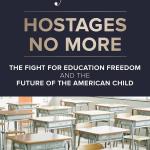The plot of Rings of Power continues to crawl forward at its own pace (which isn’t to say it’s boring, just don’t look for quick plot development here). This time the theme seems to be about choices: will Elrond be true to his friend Durin? Will the people in the Southlands be true to what they know is right, or bend the knee to Sauron? Will Nori keep helping the stranger, even if he’s dangerous? Will the Queen Regent of Numenor–Miriel–help Galadriel, or retain Numenor’s isolation?

That last one is in some ways the most interesting, because Miriel has had a vision from a palantir of the future and of the destruction of Numenor. The problem is, this vision is without context. Will Numenor be destroyed if it helps Middle Earth resist the rise of Sauron? Or will it be destroyed if it fails to help? Miriel’s father is mentally unfit to rule, so there’s not much guidance for Miriel from him. (He loves the elves and elvish ways, but then warns her against going to Middle Earth). Even the people seem to be divided, with some excited for adventure, some refusing to help the elves, and some with an indeterminate (and I think insuffrable) longing for something ‘out there.’
We see here something that is often the problem with prophecy in fiction (and Tolkien is no exception). It is a plot device and usually left vague–often for the purposes of providing a clever twist later in the story. This isn’t exactly how prophecy works in the Bible, though it’s not unrelated either. Much Biblical prophecy is more specific–a vision of the destruction of a city, for example, is either absolute (this will happen no matter what, as with Sodom and Gomorrah) or possible with clear guidance on how to avoid said destruction (as with Jonah’s message to Nineveh). There are of course vague prophecies as well, but even when the future is indeterminate in Scripture how believers are to behave is not.
This is where we find ourselves as Christians. We know that Christ will return at some point in the future–the date is vague and the details are unclear from our perspective (and much argued about amongst Christians). But how we should act until then is generally clear: we should be patient, kind, gentle, etc etc etc, all while encouraging each other in the church and telling others the good news of the Gospel.
But we also find ourselves at times not knowing what to do. Miriel’s dilemma is a legitimate one, and people of good conscience can disagree in their fictional world as well as people can disagree in ours over politics, culture, and, yes, war. And when we find ourselves in these circumstances, a return to Biblical prophecy can give us the guidance we actually need for our daily lives, even if it doesn’t give us a clear-cut answer to our immediate circumstances.
Whether Rings of Power is going to provide that kind of guidance, well, again, we’re still waiting to see. Tolkien had a clear moral vision of the world–Frodo never really doubts whether the ring ought to be destroyed, he just doesn’t want to have to be the one to do it. Rings of Power might have that kind of vision, but if so it’s taking its sweet time getting there.
Dr. Coyle Neal is co-host of the City of Man Podcast an Amazon Associate (which is linked in this blog), and an Associate Professor of Political Science at Southwest Baptist University in Bolivar, MO












